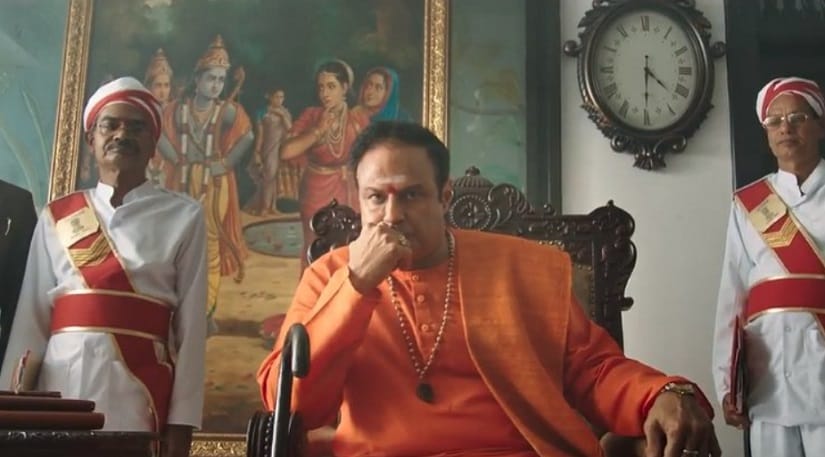Sai Madhav Burra, who started his writing career with television, has carved his own niche in the Telugu film industry in a short span of time with his contribution to films such as Krishnam Vande Jagadguru, Kanche, Gopala Gopala, Gauthami Putra Satakarni and Khaidi No 150 among others. Thrilled about writing the screenplay and dialogues for the upcoming two-part biopic on legendary Telugu actor Nandamuri Taraka Rama Rao (NTR), Burra opens up in this exclusive chat with Firstpost about the experience of writing the biopic of the most revered Telugu star, deciding what to include and omit in the narrative, and what audiences can expect from the highly anticipated biopic.
[caption id=“attachment_5775111” align=“alignnone” width=“825”]
 A still from the NTR biopic. Image via Twitter/@Maiself_siva[/caption]
A still from the NTR biopic. Image via Twitter/@Maiself_siva[/caption]
Having grown up as a die-hard fan of NTR, Burra said he enjoyed the process of writing and was never under pressure. “I’ve been an NTR fan from a very young age. I grew up watching his films, idolised his ideologies and admired his leadership. Today, I feel really special to have landed the opportunity to write a biopic on NTR. I enjoyed the process of writing because I didn’t have to really struggle to gather my thoughts and everything I knew about him flowed naturally in the form of words. We didn’t really have to research about NTR’s life except when we had to unearth some unknown facts.”
Asked how he decided what to include and omit in the process of writing, he said that it is very important to not to tamper with the soul of a story when you are writing on someone’s life. “Every story has a soul and as a writer, it’s very important that I don’t tamper with it. The story of NTR has a soul and we’ve only tried to elevate it by making a biopic that truly does justice to his image, stardom and stature. When you take the life of any popular personality, you have lakhs of incidents to deal with and it’s impossible to show everything on screen. Therefore, you pick incidents that you feel are good and necessary for the audiences to know.”
Quoting the example of the Savitri biopic Mahanati , which had dialogues by Burra, he said, “Savitri’s life was full of incidents but we didn’t show all of them. We picked incidents that were worth sharing. What’s the need to show anything controversial? I believe it’s become a fad to talk about controversies as most people have the misconception that anything negative attracts more attention. If you take NTR’s story, there’s so much of positivity to share and inspire. Why leave all that and concentrate on the controversies.”
The two-part biopic has been directed by Krish Jagarlamudi. While the first part NTR Kathanayakudu is slated for 9 January release, the second part, NTR Mahanayakudu, will release in February. Talking about his association with Krish and how their relationship benefited the film, Burra said, “This is my fourth film with Krish and I can proudly say that each time we’ve joined hands to make something even more exciting than the last time. Both of us are huge fans of NTR and we’ve followed his life very closely. You can imagine the kind of excitement when two hardcore fans come together to make a film on their idol. NTR biopic was one such project for us which we thoroughly enjoyed working upon, and it helped us complement each other even more on creative level.”
Burra is all praise for Balakrishna, who has essayed his father NTR in the biopic. He says his performance moved him to tears on many occasions. “He was phenomenal in the film. Nobody else could’ve played NTR as earnestly as Balakrishna. On a few instances, when he walked on to the set in a particular get up of his father, I’ve stared in awe and wondered whether I was seeing the real NTR. His performance on a few occasions moved me to tears.”
On a concluding note, Burra said there cannot be a more enriching experience for a writer than to write a biopic on one of the most popular personalities. “I can proudly say this is my best work yet and the most enriching writing experience. To get sucked into the world of someone’s life and to write based on that experience can be very enriching.”
)